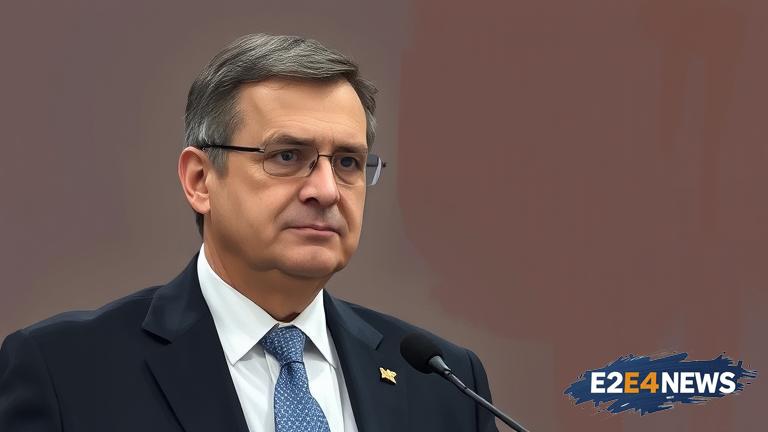The Macedonian parliament has voted to express no confidence in prosecutor Kocevski, citing concerns over his handling of high-profile cases. Despite this, Kocevski has stated that he will not resign from his position. The vote of no confidence was passed with a majority of 62 votes in favor, with many opposition parties supporting the motion. Kocevski has been under scrutiny for his role in several controversial cases, including the prosecution of former government officials. His critics argue that he has failed to adequately investigate and prosecute corruption and organized crime. On the other hand, Kocevski’s supporters claim that he has been a key figure in the fight against corruption and that his removal would be a setback for the country’s efforts to tackle organized crime. The vote of no confidence has sparked a heated debate in Macedonian politics, with some calling for Kocevski’s immediate resignation and others arguing that he should be allowed to continue in his role. The opposition parties have accused Kocevski of being too close to the government and of failing to investigate allegations of corruption against senior officials. Kocevski has denied these allegations, stating that he has always acted independently and in the best interests of justice. The European Union has expressed concern over the vote of no confidence, stating that it could undermine the rule of law in Macedonia. The EU has called on all parties to respect the independence of the judiciary and to allow Kocevski to continue his work without interference. The vote of no confidence has also sparked protests in the capital, Skopje, with demonstrators calling for Kocevski’s resignation. The situation remains tense, with many uncertain about what the future holds for Kocevski and the Macedonian judiciary. The country’s president has stated that he will not intervene in the matter, leaving it to the parliament to decide Kocevski’s fate. The parliament’s decision has been criticized by some as being politically motivated, with Kocevski’s supporters arguing that he is being targeted for his efforts to tackle corruption. The opposition parties have denied these allegations, stating that their concerns are solely based on Kocevski’s performance as a prosecutor. The vote of no confidence has raised questions about the independence of the judiciary in Macedonia and the ability of prosecutors to operate without political interference. The country’s international partners have called for calm and for all parties to respect the rule of law. The situation is being closely monitored by the international community, with many watching to see how the situation will unfold. The vote of no confidence has also sparked a wider debate about the state of the judiciary in Macedonia, with some calling for reforms to ensure greater independence and accountability. The government has stated that it will not comment on the matter, leaving it to the parliament to decide Kocevski’s fate. The opposition parties have vowed to continue their efforts to have Kocevski removed from office, citing concerns over his ability to effectively investigate and prosecute corruption. The situation remains uncertain, with many waiting to see what the future holds for Kocevski and the Macedonian judiciary.
